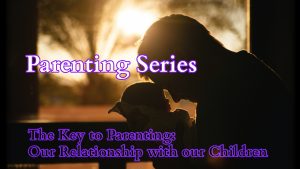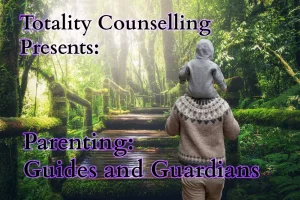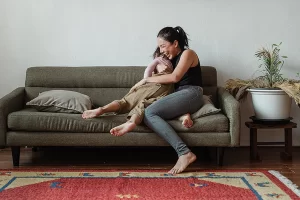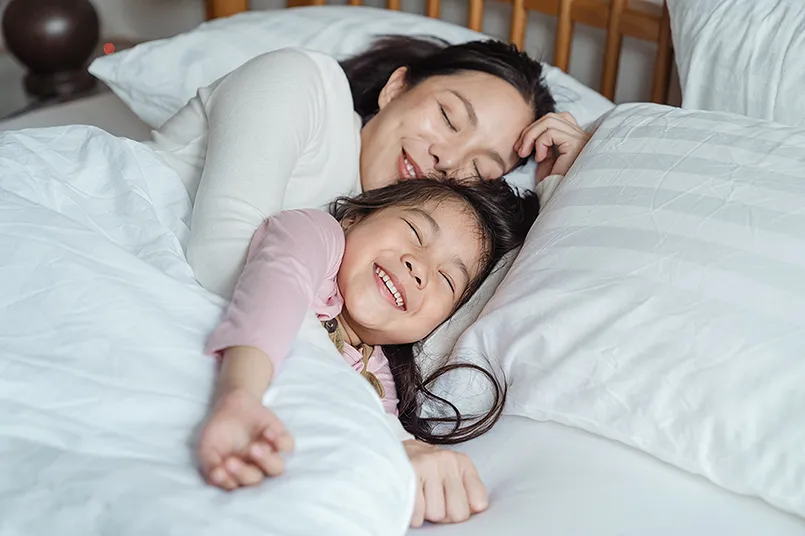
The most Important thing we can give our Children
There are many things that the world tells us we should or “need” to do for our children. They should have the best education at the most expensive schools; they should be in eight different extracurricular activities a week and they should have 2-3 playdates with their friends every week. The list could go on and on.
The Most Important our Child needs from us
What if I told you the most important thing for your child…. Assuming you want them to grow up happy, successful, resilient and caring, is a secure safe attachment with at least one (more is better) Mature adult figure. As their parents you are in the perfect position to be that unconditional safe haven, the calm and reassuring harbor they know they can always come back to. However, secure attachments can be other adults in our children’s lives; like family members, teachers, step-parents, any trusted mature adult can support them that way. As their parent if you are that secure attachment for them, then you know they are getting their needs met.

What is Secure Attachment?
So, what is attachment? So, what is a safe and secure attachment? It means that our children know and are consistently reminded… that they are loved, that they are accepted, and that there is someone there for them no matter what. It’s closeness both physically, and emotionally, its’ being connected and being truly known by another person that cares deeply for us. These core attachments in our children’s lives are their home base, their shield from all that world throws at them, the tough days at school, their fights with their friends, the sadness and the pain of life.

“There is no friendship, no love, like that of the parent for the child.” –Henry Ward Beecher
Photo Emma Bauso pexels.com
As an adult just think of the people closest to you. Think of one of your close friends, what is it about that relationship and that person that makes you want to be in that person’s life? Do you feel connected to them, do you feel known and seen by them? That is one of our deepest needs as human beings, and when we don’t have that in our life, we long for it. Now you might be having a bunch of thoughts or memories flash through your mind right now. Times when you lost your temper with your children, maybe when you were too busy to listen to them. That is your innate knowing of what your child needs. The wonderful thing about the child parent dynamic is your child knows innately or intuitively as a base instinct that they need a secure attachment to someone who will guide them and keep them safe. Think of the baby duck or goose that imprints on its mother right after it’s born. Its nature directs it to find a safe place, a compass point that will direct it in how to live and survive. Human babies are much the same. When they are born, they cry (their only way to communicate at that point) to let us know they need something. Society has long known the importance of the mother child and father child relationships. When children start to crawl and walk, we direct them to keep them safe and as they get older, we direct them in navigating the world in other ways. They have that innate knowing, that they need us and really, they depend on us for their basic survival. We know instinctively how to parent them, how to meet their needs. We might stumble through it but when we trust ourselves, we just know what to do.
See nature is really smart. It knows, that as parent we are going to have to dedicate ourselves to our children in ways that before we had kids we could hardly imagine. You all know what I am talking about. The sleepless nights, the changing of diapers, the constant attention that it takes to keep a young mobile child safe and the 1000’s of things we do for our children without the least bit of gratitude from them. Nature is smart because it creates a loving bond between us and our child that makes it easier for us to make all those sacrifices, many of us do it gladly…. Some of us are even crazy enough we decide to do it again, by having more children.
The truth is our children don’t stop needing us and needing that unconditional relationship as they get older. It definitely changes over time. As they get older, they will need us physically less and less. They will be able to dress themselves and feed themselves and God willing clean up after themselves. As they get older, they will need us to guide or be their compass point in how to handle their emotions, navigate school and friendship and later romantic relationships. We can’t be our children’s compass point if they haven’t given us that permission. They give us that power and authority when they trust us to be there for them unconditionally.
A secure or safe attachment in your child’s life give them the ability to stay with the experience of emotion. It allows them to flow with or through the rise and fall of the emotional experience; therefore, not getting stuck in the middle or needing to create defenses to protect themselves. Can you imagine getting into your early 20’s and having a grasp on how to not let your emotions overwhelm you all the time? Our brains more naturally flow through challenging experiences when we know we are held in the arms of safety. We can be that shelter from the storms for our kids; until they have found their own resilience, their own self-love because they know they can practice and fail and always return to that safe place in the relationship they have with us.
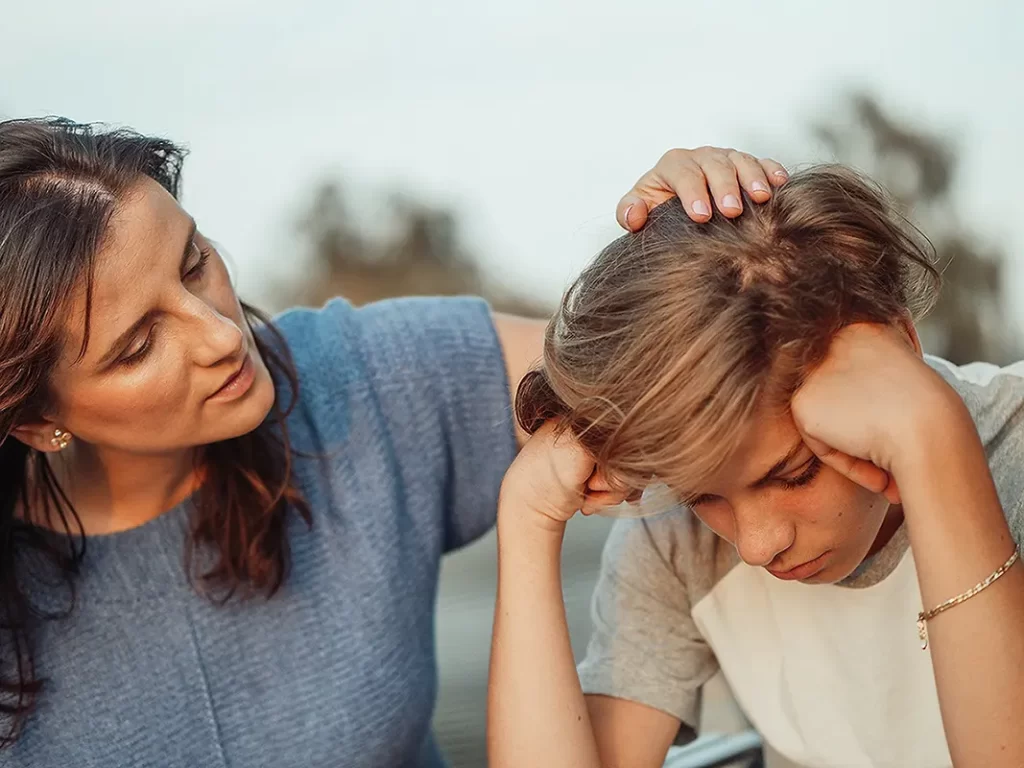
“Your kids require you most of all to love them for who they are, not to spend your whole time trying to correct them.”
― Bill Ayers
Photo:Kindel Media pexels.com
As a father I have always loved and naturally took on the titles of “guardian” and “guide” as a parent. I take great pride and feel honored to hold those positions in my son’s life. Those two terms really encapsulate what I’ve come to know through my own experience as a father and as a counselor of what the job of a parent really is. We are to protect, and we are to guide our children until they no longer need that from us.
When they don’t know that they are secure in their relationship with us – they will look for it else where
It’s understood from a psychological perspective that a safe environment are the key things they need for their maturation and healthy individuation, which are the two things that will serve them in having the best life as an adult. As I mentioned earlier children instinctively know they need a safe person to always come back to; a compass point to orient themselves to. If they don’t get that from you, they will find it somewhere else. This is actually a really good thing for them; it directs them to find a safe secure attachment if they aren’t getting it.
What Dr Neufeld warns us about is when our children are looking to have those attachment needs of being seen and known, loved no matter what and for guidance on how to navigate the world from other children. Children just don’t have the emotional stability, unconditional love, or the ability to put another person’s needs above their own like a mature adult does.
You can see this widespread in many or maybe even most cultures today. We see kids desperately needing their friends, always needing to be in contact with them, even right after they just saw them. It shows up as children turning on their parents in favor of their friends, they make alliance with their friends and protect those alliance by pushing away any threat to them, including their parents.
We often see as a children get older; they want to spend more and more time with friends; we might see it as them gaining independence from their parents; but they need us more than most of us realize. We are the adults in these relationships, we need to guide them with strength; even when they are teens and young adults.
This isn’t to say that children shouldn’t have good and close friends; of course, they should. It is saying that they need to have their attachment needs met by a trusted adult and not by other children. We are the adults, and it is our job to direct them when they go astray. Many of us don’t realize or want to accept the truth of this. It might seem a lot easier as our children get older, that they spend more and more time with their friends, giving us more time for ourselves, to work, to be social with our friends and have time for what we want. Of course, there is a balance; as a parent you need to have time to recharge your own batteries; but I strongly encourage you to make your relationship with your children a high priority.
Has parenting gotten harder?
Has parenting gotten harder? When I think of this question. That old man voice saying “Well back in my day we walked 20 miles to school in the snow both directions!” comes to mind. People always seem to think that what they lived through was harder than it is now.
I can’t really say if parenting has gotten harder or easier in current times. There is certainly a lot more information and awareness about parenting. There didn’t used to be books written about parenting, courses teaching you how to be a better parent. In the past this video wouldn’t have been needed.
A lot has changed in the last 50, 30 or even 10 years. Our societies and cultures have changed. We used live more tribally; children were the responsibility of all the adults in the village. Children had an entire village directing them, loving them and protecting them. We used to live with or at least very near our extended families, we lived in small town and communities. We had the support of many other adults. Now many of us don’t live near or choose to spend time with our families, we don’t come together as communities like we once did.
The world has also changed when it comes to finance and economics. For many families both parents need to work to support even a basic existence. We put our kids in daycare’s that have high children to adult ratios, so are kids don’t get the individual attention when they are young that they really need.
I don’t say this to blame all of these things that have changed in the world; I share them to bring them to our awareness. For most parents at least in Western society we have an enormous pressure to fill the void of attachment for our kids since there often just isn’t any other mature adults to fill it. The structure of our society doesn’t support us in the way society supported parents in the past.
When our children are healthily attached to us to will make parenting easier
Now, I want to share with you some good news. This good news is when our children are attached to us it makes them easier to parent. They are able to hear what we are saying better, they are able to follow our direction and pay attention better. It makes the dynamic between us flow naturally. The connection also makes us feel good within ourselves as people. I know for me after I’ve connected to my son by focusing on him and his needs, I feel good. I have a surge of energy and of joy.
I see children being a lot like adults in this way. If you think about, when someone has upset you, or you don’t like someone, you are a lot less likely to listen to them. Maybe it’s your boss or a co-worker, or better yet your romantic partner and they ask you do something for them. What is your response. Your response is probably. yeah, not going to happened right? So why would it be any different for children? We resist communication and guidance from people that we don’t trust or have upset with. This is called counter-will and it’s actually a good thing. Maybe I will talk more about that in another video. An opposite example: when a relationship is good between you and another person you tend to trust what that person is telling you. When looking to buy a new car, get a massage or find a therapist what do most people do? They ask their friends who they trust for recommendations. They are asking their friends for direction in how to solve their problem. It’s the same with kids. If you have that secure relationship, they will look to you for direction.
A few of the biggest Challenges in Being a Loving Parent
A good attachment relationship with our kids will keep the love flowing between us which gives us a real boost in being able to stay loving and available with our children even when they are telling us how much “they hate us” and how we are “ruining their lives”.
No matter how amazing a parent we are, there are always going to be times when we lose our cool and aren’t as loving or patience with our kids as we want to be. In almost all circumstances we can mend or repair the relationship, re-establishing our children’s trust. As you might expect, the better our relationship with them the easier it is to repair things when they that’s needed.
Often when we think about parenting, we focus on our kids and what they need. What they need is us to be as loving and safe as we can be for them. Let’s face it, our kids are experts on pushing our buttons. They don’t mean to push our buttons, and that’s an important thing to remember, but they do. We obviously can’t expect ourselves to always be perfect but for the sake of our children and ourselves we are well served to have our own loving practices that support us. Becoming a more happy, balanced and mature individual ourselves is probably the best thing we can do as a parent; after all the main thing our kids want and need from us is to be loved and accepted. The more we love and accept ourselves the more we can be there for them.

“Becoming a more happy, balanced and mature individual ourselves is probably the best thing we can do as a parent; after all the main thing our kids want and need from us is to be loved, to be accepted. “
Photo: Andre Furtado pexels.com
Like one of my mentors, I love the analogy of the oxygen masks on the airplane. When you fly, in the case of an emergency they always instruct you to put your own oxygen mask on before helping someone else with theirs. If you aren’t breathing, you aren’t much good to anyone else. If we don’t take care of ourselves, we can’t take good care of anyone else.
More Great News for Parents
Chances are very good that no matter what your relationship is like with your child right now; it could improve in some way. It could be that your children rely more on their friends for support then they do you at this point. Don’t worry, in all but a few rare situations it can all turn around. Of course, it’s easier to keep a good connection with our children then to try to re-establish one, so even if your kids are looking to you for love and direction now it doesn’t hurt to make it even stronger, we never know what curveballs life might throw at us in the future.
So what can we do?
So what can we do? We can learn more about Attachment theory and how to stay connected to our children. I’ll be releasing videos that talk about the basics of how we can let our kids know that we are there for them unconditionally.
A good thing to remember is that not everyone in your life will understand or accept these ways of parenting. They might have strong conviction in something else and that’s ok. Remember though that your children are your responsibility and you have the right to do what you believe to be best for them.
Another thing we can, and I really encourage you to do, is take care of yourself. As parents our children aren’t going to take care of our needs (or at least they shouldn’t) as it’s not their jobs, but that doesn’t mean we shouldn’t take care of ourselves. When you get the emotional/mental support you need you give yourself and your child a gift. When our upsets are triggered less often and we trust ourselves to be less defended we become more loving, forgiving and caring for ourselves. That might be working through our anger or anxiety, getting support with our grief or having more fulfilling adult relationships. All of this brings us more joy, acceptance and understanding which benefit everyone in our lives.
Two Critical things to Remember
One of these things are even we feel we haven’t done the best jobs as a parent; it’s crucial not to beat ourselves up about. Of course, that is easier said than done. For myself, knowing all I know and doing my own therapy, I still have moments with my son where I’m like, damnit I just didn’t do that very well. I got upset and I wasn’t very patience with him. Maybe I lost my temper and got harsh with him. Or I was rushing him to do something because I was in a hurry for some reason. I’m human and I have ton of other things I am trying to manage while I am parenting. It’s ok that I make mistakes and learn. I’ve come to see that my mistakes are a place for me to learn and even sometimes for him to learn. He gets to see that it’s ok to make mistakes that he can learn from them.
I remember when my son was about two years old. I don’t remember the circumstances, but I came to the realization that I was going to mess him up in more than one way. I knew that one day he would probably be sitting in a therapist’s office telling them of times when I wasn’t perfect, and I did something that upset him, and he was still carrying that around. By realizing this and having at least some acceptance of that it, I am more able to accept that sometimes I miss the mark. When I could have done a better job. It’s important I don’t take it as a defeat though. I don’t use that as an excuse not to do my best and show up for him. I still aim to do my very best to be an awesome father and much of the time I am. But this realization gave me some acceptance for myself, that I was going to make mistakes and it wasn’t the end of the world. As I love and accept myself; I am more able to that for him. I can’t go back and change those times that I made mistakes, but I can do something about how I am with him now and in the future.
The other critical thing to remember is that we don’t need to be there for our kids 100% all the time. Of course, we can’t spend all our time being there for our kids that isn’t possible. We have lives and it’s not good for our kids when we are always there for them every second. It is good for them to fail and learn things for themselves. What is ideal is that they know we are there for them when they really need us.
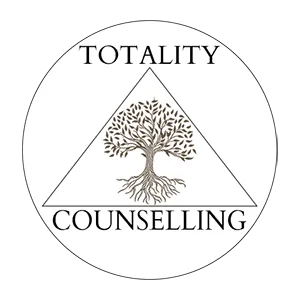
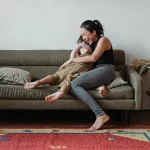 Next Post
Next Post